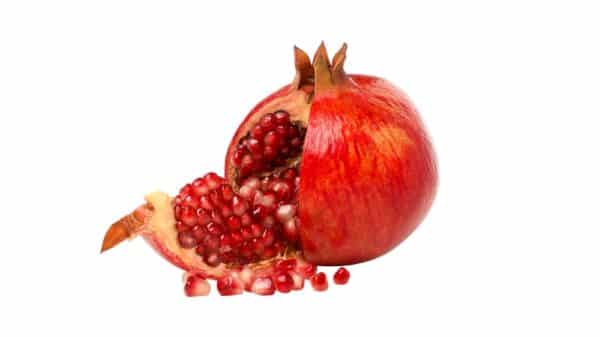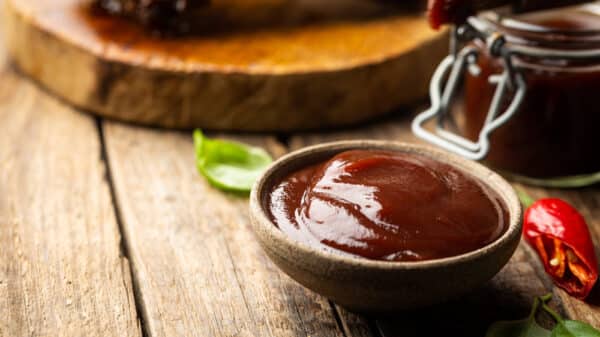Gut health has surged into the spotlight over the past few years—and it’s not hard to see why. Our gut is home to trillions of bacteria, which play a crucial role in everything from our immune system to our metabolism, and even our mental well-being. One essential nutrient that often flies under the radar in discussions about gut health is fiber.
Dietary fiber is a remarkable nutrient found in plant foods. It not only aids in digestion but also helps enhance immune function and reduce inflammation. It’s worth noting that fiber isn’t a single entity; it’s divided into two main types: soluble and insoluble. Soluble fiber dissolves in water, while insoluble fiber does not. Both types are not just beneficial—they’re essential for a thriving gut. While many people think of fiber mainly as a way to keep things moving in the digestive tract, recent research reveals that it also plays a significant role in maintaining a balanced gut microbiome. A study published in *Frontiers in Nutrition* even found that a high-fiber diet is linked to a lower risk of chronic diseases like diabetes, heart disease, and colorectal cancer.
So, how can you up your fiber intake? To shed some light on this, we turned to Caroline Young, a registered dietitian and the owner of Whole Self Nutrition. Young explains why fiber is indispensable for gut health and offers practical advice to help you incorporate more of it into your daily diet—essentially, supporting digestion and your overall health.
Fiber is Non-Negotiable for Digestive Health
When discussing fiber, it’s impossible to overlook the importance of insoluble fiber, which you can find in whole grains, nuts, and a variety of vegetables. This type of fiber adds bulk to your stool, promoting movement through the gastrointestinal tract. Conversely, soluble fiber, found in fruits like apples and in some vegetables, absorbs water and forms a gel-like substance, effectively slowing digestion.
Young emphasizes, “Fiber helps keep us regular, which is crucial for maintaining a healthy digestive system.” Let’s be real here: regularity matters. Nobody enjoys the discomfort of constipation. Ensuring you get enough insoluble fiber can help keep everything flowing smoothly. This is vital, especially as the Centers for Disease Control and Prevention point out that soluble fiber also plays a key role in regulating blood sugar and cholesterol levels. So, it’s not just about feeling good in the moment; this dietary shift can have lasting benefits.
Fiber Boosts Immune Function
But the benefits of fiber don’t stop at digestion. There’s a growing body of research indicating that fiber plays a pivotal role in bolstering your immune system as well. The bacteria in your gut depend on fiber for sustenance, and a well-fed microbiome translates to a more robust defense against infections and illnesses.
Fiber-rich foods not only help your gut microbes flourish, but they also produce short-chain fatty acids during fermentation, which can strengthen the immune system. So, the next time you’re munching on a bowl of oatmeal or adding beans to your salad, think of it as not just a meal but also as a way to empower your immune system.
Incorporating more fiber into your daily routine doesn’t have to be overwhelming. Start by integrating more fruits, vegetables, nuts, and whole grains into your meals. Your gut—and your entire body—will thank you for making this small yet impactful change. Recognizing the power of fiber is the first step toward unlocking a healthier you and setting the stage for long-term wellness.Young emphasizes the importance of fiber, stating that it acts as essential nourishment for the beneficial bacteria residing in your gut. These bacteria are crucial for bolstering your immune system, which is a significant part of your overall health. In fact, recent research published in the journal *Nutrients* underlines how fiber plays a pivotal role in managing your body’s immune responses, potentially reducing the risk of chronic inflammation.
In Young’s words, “Higher dietary fiber intake is associated with improved gut microbiota, which can help prevent inflammatory conditions and support overall immune function.” This means that by incorporating more fiber into your diet, you aren’t just enhancing your digestive health—you are actively supporting your immune system.
Moving on to weight management, fiber emerges as a valuable ally. Studies show that fiber can be an effective tool for weight loss. It helps you feel full longer, which naturally curbs those late-night snack attacks and mindless munching. While fiber doesn’t directly increase your metabolic rate, it plays an integral role in metabolic health. Keeping blood sugar levels stable and maintaining a healthy gut are crucial for your metabolism, and fiber does just that.
So, what are the best fiber-rich foods to include in your meals? Consider adding whole grains like oats and quinoa, legumes such as beans and lentils, fruits like berries and apples, and vegetables like broccoli and carrots. These foods not only deliver fiber but are packed with essential nutrients that promote overall wellness.
Integrating these fiber-rich options into your diet doesn’t have to be daunting. You could start your morning with oatmeal topped with fresh fruit, enjoy a hearty bean salad at lunch, or even snack on raw veggies with hummus in the afternoon. By making small, manageable adjustments to your diet, you can boost your fiber intake and, in turn, improve your gut health and immune function.
It’s about finding what works for you and your lifestyle. Remember, it’s not just about adding fiber; it’s about embracing a more holistic approach to your health that includes balance, enjoyment, and awareness of how food affects your body. Making these changes gradually can make the journey feel less overwhelming, turning a daunting task into a fulfilling lifestyle choice.The best sources of soluble fiber are often found in everyday foods that are both nutritious and delicious. Think of oats, beans, lentils, vibrant apples, crunchy carrots, and tangy citrus fruits. These foods aren’t just good for your taste buds; they play a vital role in maintaining optimal gut health. On the other hand, insoluble fiber is abundant in whole grains, brown rice, nuts, and fibrous vegetables like broccoli and cauliflower. Both types of fiber serve distinct but equally important functions in our digestive system.
To truly nurture a healthy gut, incorporating a variety of fiber-rich foods into your meals is essential. Registered dietitian and nutrition expert Young emphasizes the importance of variety: “Soluble fibers are primarily found in fruits and veggies, while insoluble fibers are mostly found in cereals and grains.” This means that a colorful plate filled with fresh produce alongside hearty whole grains can significantly enhance your fiber intake.
Now, you might be wondering how to seamlessly add more fiber to your diet. The good news is that it’s simpler than you might think! Start your morning right by tossing some berries or a banana onto your cereal or toast. Consider swapping refined grains with whole grains like quinoa, oats, or farro whenever possible. For snacks, opt for nuts, seeds, or some dried fruits. And don’t forget to pile on the veggies at lunch and dinner. These small, intentional changes can not only help you achieve your daily fiber goals but can also pave the way for improved gut health and overall wellness.
When it comes to the question of whether to supplement with fiber, opinions vary. For many, focusing on whole food sources is the best path to take. However, if you find it challenging to meet your fiber requirements with diet alone, fiber supplements could be a convenient option. It’s crucial to choose high-quality supplements and consult with a healthcare professional before diving in. Remember, supplements should complement, not replace, a diet rich in whole, fiber-filled foods.
Listening to your body and understanding its needs is key. Every individual’s digestive system is unique, and as such, your approach to fiber may differ from someone else’s. Taking the time to explore which fiber sources make you feel your best is part of a sustainable, healthy lifestyle. So if you’re struggling with stomach discomfort or simply looking to elevate your nutrition, give these fiber-rich foods and strategies a shot!
Not only will your gut thank you, but incorporating more fiber into your daily meals can also aid in weight management, blood sugar control, and even heart health. The evidence is clear: a fiber-rich diet is a cornerstone of effective wellness. Whether it’s tackling cravings, supporting digestion, or just enjoying a full meal free of discomfort, prioritizing fiber is a step in the right direction towards a healthier you.While striving for optimal gut health, incorporating enough fiber through whole foods is always the ideal approach. Yet, for many of us, hitting those daily fiber targets with diet alone can feel like an uphill battle. If you find yourself struggling to meet your fiber goals, fiber supplements like psyllium husk or inulin can play a role in filling that gap. However, it’s important to approach supplementation with caution. As nutrition experts often advise, “Supplementing with fiber should only be done when necessary, and it’s best to work with a healthcare provider to determine the best route for you.”
Before turning to supplements, take a moment to reflect on your current diet. Whole foods like fruits, vegetables, whole grains, and legumes are not just excellent sources of fiber but also deliver a wealth of nutrients that supplements simply can’t replicate. Think of it this way: a bowl of oatmeal not only provides that much-needed fiber but also keeps you feeling satisfied and energized throughout the morning, thanks to its complex carbs and other beneficial compounds.
That said, if you do opt for supplements, be aware that some individuals may experience digestive discomfort—think bloating or gas—when using fiber supplements. This is why your best bet is to increase your fiber intake from whole food sources gradually. Start by adding one additional serving of fruits or vegetables to your meals each day, or swap out white bread for whole grain. Little steps can make a big difference over time.
If you’re feeling overwhelmed by the thought of changing your diet, you’re not alone. The journey towards better gut health can be daunting, but every small change counts. Working in partnership with a healthcare provider or a registered dietitian can also help personalize your journey, ensuring you’re on the right track while you’re busy juggling all the demands of life.
Remember, making sustainable changes in your diet is a marathon, not a sprint. Focusing on whole foods is a step towards fostering a healthy gut—one delicious meal at a time!
Image Source: PeopleImages.com – Yuri A / Shutterstock































